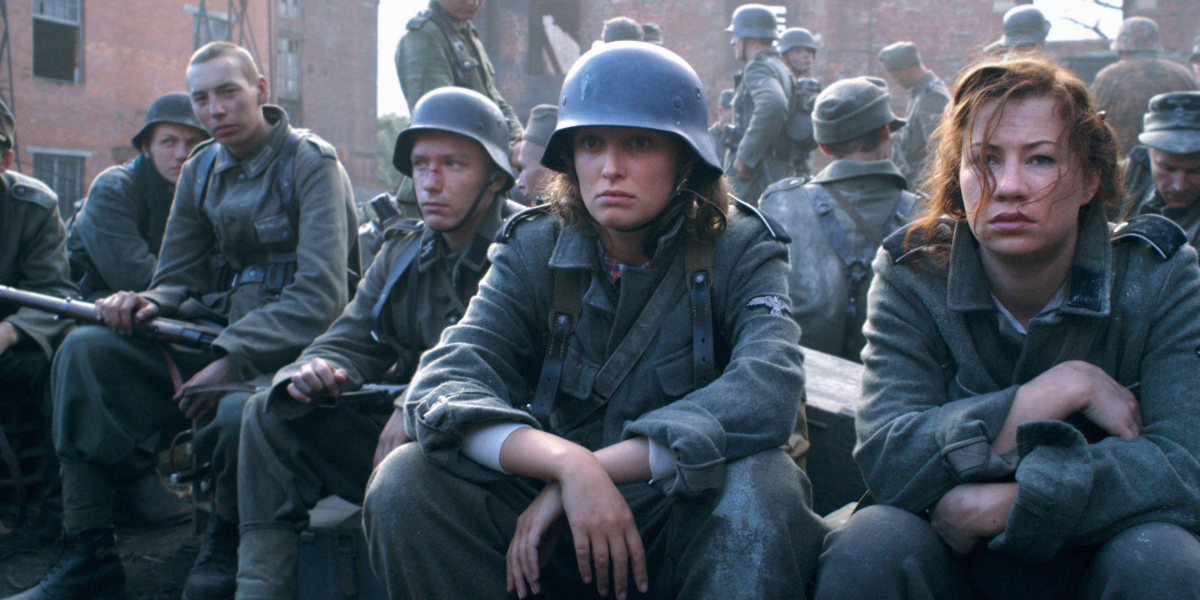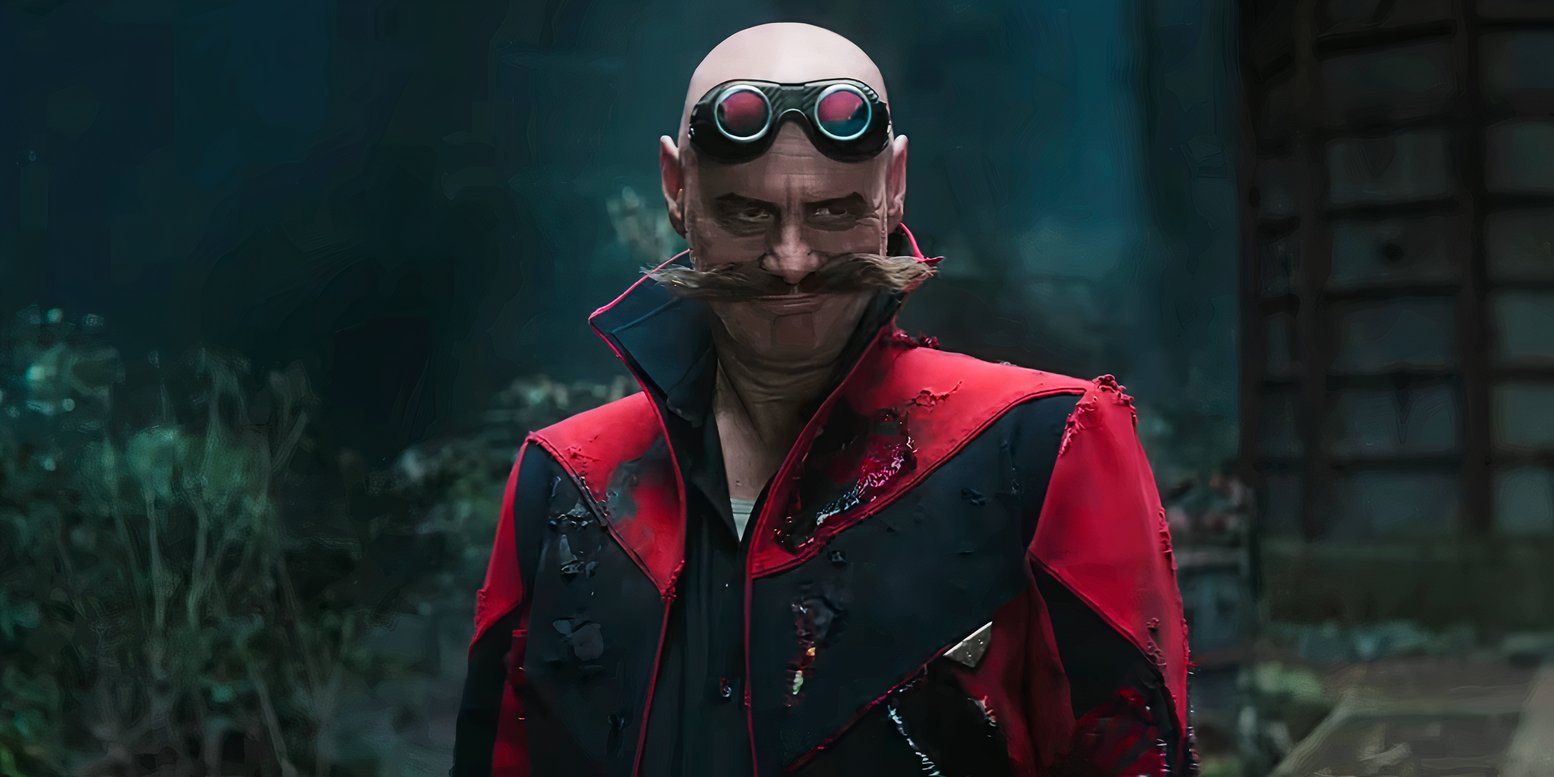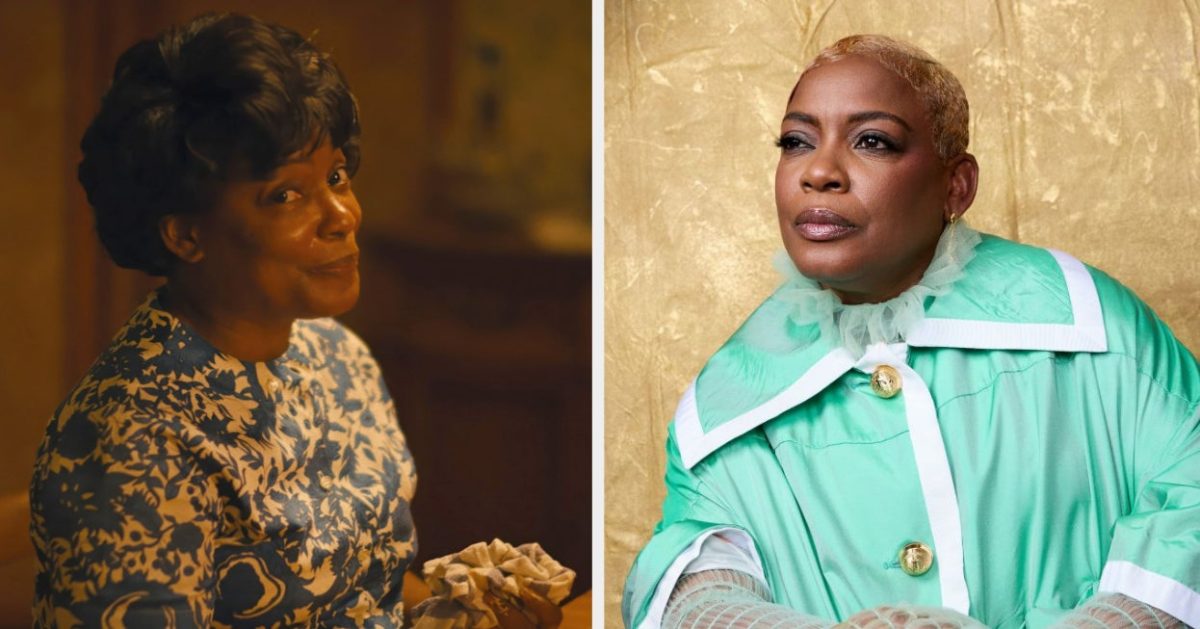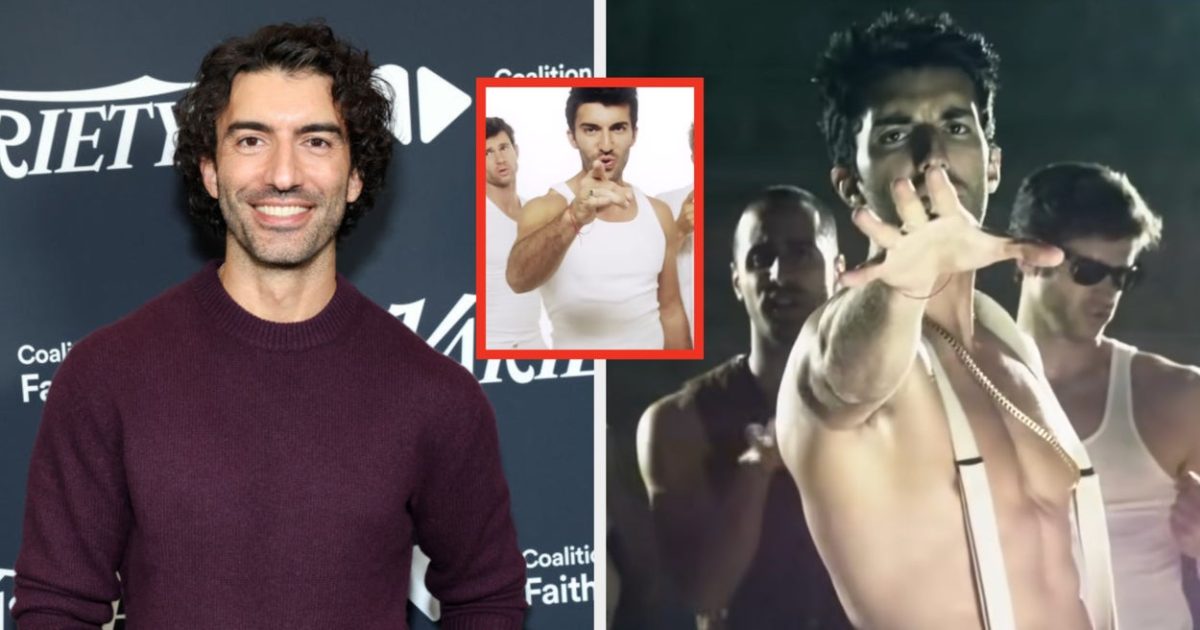
‘Downfall’ at 20 – One of Cinema’s Bravest War Movies Remains a Towering Achievement
Jul 28, 2024
The Big Picture
Downfall
authentically portrays Hitler’s last days with truth and sensitivity, avoiding sensationalism and delivering a historically grounded vision.
Director Oliver Hirschbiegel and writer Bernd Eichinger honor the memory of Hitler’s victims with a balanced and realistic depiction of the dictator.
Bruno Ganz’s performance as Hitler is chillingly real, showing the man behind the myth with a dedication to accuracy that is compelling and unforgettable.
Every historical drama bears an awesome responsibility to its real-life subjects, but few films bore a weightier burden than Oliver Hirschbiegel’s 2004 masterpiece, Downfall. While it was certainly not the first film to portray Adolf Hitler, it does have the distinction of being the first major German film to tackle the topic, with the legendary Bruno Ganz in the lead role. Hirschbiegel and screenwriter Bernd Eichinger recognized the awesome responsibility that was before them, along with the potential controversy they might face for telling the story of the last days of World War II. The national taboos associated with Hitler had been enough to scare off a generation of filmmakers before them, but rather than shirk the responsibility and give in to tired clichés and cheap caricature, the makers of Downfall deliver one of the most authentically realized historical movies ever made. After 20 years, Downfall remains an extremely important film, and a symposium in itself on how to handle tough history in an adroit and sensitive manner.
Downfalll Release Date September 8, 2004 Director Oliver Hirschbiegel Cast Bruno Ganz , Alexandra Maria Lara , Corinna Harfouch , Ulrich Matthes , Juliane Köhler , Heino Ferch Runtime 150 minutes Main Genre Biography Writers Joachim Fest , Traudl Junge , Melissa Müller , Bernd Eichinger Studio Newmarket Films Tagline April 1945, a nation awaits its… Expand
How Does ‘Downfall’ Get Historical Drama Right?
Bernd Eichinger had wanted to make a film about the final days of Adolf Hitler for decades before realizing his goal, with the feat proving too massive in scope and rife with potential controversy. Director Oliver Hirschbiegel was hesitant himself to take on the project, knowing the subject had always been taboo among Germans. Both men fully grasped the severity of what they were attempting to do, and so endeavored to make a film that handled its historical obligation in the best way it could: by telling the truth. The only way to accurately portray Adolf Hitler would be to research as many eyewitness accounts of the man as possible, with Eichinger researching tirelessly to capture the facts as succinctly as he could. To this end, the through line of the film is tied to Traudl Junge, Hitler’s real-life secretary, played by Alexandra Maria Lara. Junge was Hitler’s last secretary, and she was with him from 1942 all the way to the last days in the bunker under Berlin in 1945. By showing the audience the events of the film through the eyes of people like Frau Junge, Eichinger deftly avoids dangerous speculation and lazy caricature. What is instead delivered is a balanced and historically grounded vision of the most evil man of the 20th century, just as he appeared to those that knew him. This truthful presentation does not soften any blows, nor does it seek to show any more than what is known. Anything else would be a gross disservice to the memory of Hitler’s tragically numerous victims.
Hirschbiegel embraces this approach in his directing as well, expertly presenting the screenplay with a sensitive eye. Every scene that features Hitler is shot simply with textbook camera angles, eschewing grandiose wide shots or sweeping camera work. In addition, there is no dramatic music during Hitler’s scenes, showing the dictator as dryly as possible and saving the beautiful score mostly for scenes of war-torn Berlin and her suffering civilians. Lastly, Downfall pulls no punches in its depiction of the German people that fell under Hitler’s spell, bravely portraying zealots and victims alike, rather than tepidly piling the entirety of the blame at Hitler’s feet. Downfall shows a fiercely accurate depiction of the last days of The Third Reich, reveling in nothing, and faithfully telling the stories of those that lived through those momentous times.
‘Downfall’ Doesn’t Hold Back on the WWII Battlefield
While most of the drama in Downfall happens underneath the battle for Berlin, Herschbiegel is sure to remind the viewer of the horror Hitler created. All the while he shouts and seethes about his crumbling dreams, the civilians of Germany are shown suffering bitterly. Not only are they not aided nor even allowed to flee, they are even conscripted and forced into fighting the better equipped and more numerous Red Army. In one powerful scene, a father approaches an artillery emplacement looking for his son, a boy of no more than twelve years old. The father desperately tries to reason with his son’s commanding officer, another tragically young man who argues that this father’s son is a brave defender of Germany. Another conscript speaks up, a young girl with her hair in braids, proudly declaring that they will fight back because they “…made a pledge to the Fuhrer.” The terrible brilliance of this dialogue about defending Germany happening amidst the crumbling facade of its capital is pointed and painful.
How Did Bruno Ganz and Oliver Hirschbiegel Show the Real Hitler in ‘Downfall’?
Bruno Ganz was already a certified legend of German cinema, having acted in classics like The American Friend and even stepping into more esoteric fare with Lars von Trier’s The House That Jack Built. Just like Hirschbiegel and Eichinger, Ganz was reticent to tackle such a sensitive subject, but he would state in interviews that he was compelled by a certain fascination to accept the role. Ganz delivers what might be the performance of a lifetime in Downfall, with the actor having researched his role for four months before filming. The only way to avoid an exaggerated and unfaithful pastiche was to watch and listen to as much material depicting the real Adolf Hitler as could be found, with Ganz giving specific mention to a little known recording of Hitler’s natural, conversational voice. The result of this effort was a balanced, terrifyingly real performance that not only showed the shouting tyrant behind the podium, but also the charming and powerful presence that he was. Again, Ganz’s performance is nothing but the truth, showing the man within the monster, rather than the mythical figure seen in books and black and white film reels.
When Traudl Junge first meets Hitler in 1942, he seems gentle and kind, even showing affection for his dog and a genuine interest in the women he is interviewing. Far from the fire-breathing monster he is remembered as, this is a man that could charm anyone, inspire respect, and indeed, sway the will of a nation. But once the story jumps into the crumbling city of Berlin in 1945, we are shown the brutal, meglomaniacaly evil man that he truly was. Much of Hitler’s screen time is spent showing his fantastical bloviating on how the German army could still repel the Soviets and defend Berlin. He lashes out at his officers in raging tirades, declares any attempt to retreat a capital offense, and continues to have his own people executed even while they are harried by the invading Soviets. Even when Hitler begins to accept the inevitable defeat of Germany, he adamantly refuses to surrender, and what is worse, he will not allow the army to evacuate Berlin’s civilian population.
Related This Overlooked WWII Movie Doubles As a Thrilling Zombie Horror The genre-bending film appeals to both fans of zombie horror and WWII drama.
At first, he claims that the soldiers cannot be spared and that the German people must be strong, but before long, it becomes clear that he hates the people of Germany, resentfully blaming them for the fall of his Reich. Even as he laments over the failure of his plans for Germany and the world, he is full of hate, not only for his own people, but for the victims of his terrible crimes. During a conversation with his personal architect, Albert Speer (played by Heino Ferch), Hitler casually remarks that he can at least be proud that he “cleansed the German land of Jewish poison.” There is no ceremony in this delivery, only pure evil casually uttered to a colleague from an armchair. And just as frightening is Speer’s total ignoring of Hitler’s quip, as if it meant nothing to him. Downfall presents the reprehensible, deep evil of Adolf Hitler as he lived it himself. The memory of his victims demands the truth, and that is what is given; nothing more, and nothing less.
Downfall is, and will likely remain, the authoritative film about Hitler’s last days, and should be admired and viewed by as many people as possible. The filmmakers recognized and fully embraced their obligation to the historical record, along with the awesome responsibility to Hitler’s victims. Led by a near perfect performance from Bruno Ganz, the drama portrayed is balanced, respectful, and terrifyingly compelling. This film is exactly what it needs to be; a truthful adaptation of one of the most consequential stories in recent history that ought to be appreciated and imitated for decades to come.
Downfall is available to rent on Prime Video in the United States.
Watch on Prime Video
Publisher: Source link
Aunjanue Ellis-Taylor Talks Black Trauma, Nickel Boys
That's beautiful and so refreshing to hear. I’ve seen discourse online with sentiments of “Black films always have to have some type of trauma. Why can’t our characters just be happy?” What are your thoughts on that line of thinking?…
Jan 3, 2025
Kanye West Shares Rare Photo With Wife Bianca Censori
Kanye West and Bianca Censori are looking stronger than ever. The "Heartless" singer shared several rare photos of the pair to his Instagram Story Jan. 2, giving fans a glimpse into their private life. In the photos, Kanye, 47, can be seen snapping pics in…
Jan 3, 2025
"You Can Tell Everything About A Man By The Way He Proposes": If You Never Saw Justin Baldoni's 27-Minute Proposal Video, Here's Why It Is Now Being Called The "Red" Flag Everyone Missed
The video is recirculating with millions of views and new opinions.View Entire Post › Disclaimer: This story is auto-aggregated by a computer program and has not been created or edited by filmibee.Publisher: Source link
Jan 2, 2025
Diplo Admits He’s “Tripping” on LSD During CNN New Year’s Eve Show
Diplo ended 2024 on a high—literally. Indeed, the DJ admitted to Andy Cohen and Anderson Cooper that he was tripping into the new year. “I’m so curious,” Andy told Diplo on CNN’s New Year’s Eve Live with Andy Cohen & Anderson…
Jan 2, 2025











